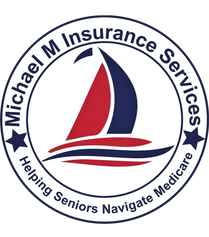Navigating health coverage can be tricky, especially for our nation’s veterans who may qualify for both Veterans Affairs (VA) benefits and Medicare. Adding to the complexity, some veterans may also be eligible for TRICARE for Life or CHAMPVA. In this article, we’ll break it all down—explaining who qualifies for what, how these benefits work together, and when Medicare makes sense (or doesn’t).
VA Health Care Eligibility: From 0% to 100% Service-Connected Disability
The Department of Veterans Affairs assigns veterans into Priority Groups (1 through 8), which help determine eligibility and access to VA health care.
These groupings are largely based on service-connected disability ratings, income, and other factors like military honors (e.g., Purple Heart recipients).
Here’s a simplified breakdown:
100% Service-Connected Disability
- Full access to VA care, with no out-of-pocket costs for services.
- VA prescription coverage included.
- No need to enroll in Medicare for VA health care purposes—but there are still good reasons to consider it (explained below).
70–90% Service-Connected Disability
- Most care is fully covered at VA facilities.
- Some copays may apply for non-service-connected conditions.
- Strong access, but not identical to 100%.
- Medicare can be a valuable secondary safety net.
50–60% Service-Connected Disability
- Still eligible for free care related to service-connected conditions.
- Limited benefits for unrelated conditions.
- Higher out-of-pocket costs or copays possible.
- Medicare helps fill the gaps.
30–40% or 10–20% Service-Connected Disability
- VA care primarily covers service-connected issues only .
- Income becomes more of a factor in determining access and cost.
- Medicare is increasingly important to maintain full coverage.
0% Service-Connected (Non-compensable) or No Service-Connected Disability
- VA access is limited or means-tested .
- May face wait times or be denied for non-service-related care.
- Medicare is essential for broader and more reliable coverage.
When Veterans Might Not Need Medicare
If you are a veteran with a 100% service-connected disability , you might feel Medicare is unnecessary. And technically, you can rely entirely on VA
coverage— as long as you only get care at VA facilities .
But there are risks:
- The VA doesn’t pay for services at non-VA hospitals (except in very limited emergency circumstances).
- If you need care while traveling or near a non-VA facility, you’ll likely pay 100% out-of-pocket without Medicare.
Bottom line: Even at 100% VA disability, enrolling in Medicare Part A
(hospital coverage) is highly recommended—especially since it’s free for most. Part B (outpatient coverage) depends on your personal needs, but
skipping it means penalties if you enroll later.
TRICARE for Life (TFL)
If you’re a military retiree (20+ years of service) or medically retired and
eligible for TRICARE, you’ll switch to TRICARE for Life when you turn 65— but only if you enroll in both Medicare Part A and Part B .
Here’s how TFL works:
- Medicare is your primary payer.
- TRICARE for Life is secondary and covers nearly all leftover costs.
- No need for additional insurance like Medigap or Medicare Advantage.
CHAMPVA: For Eligible Spouses and Dependents
CHAMPVA (Civilian Health and Medical Program of the Department of Veterans Affairs) is for:
- Survivors or dependents of veterans who are permanently and totally disabled, died from a service-connected condition, or died in the line of duty.
At age 65, CHAMPVA beneficiaries must also enroll in Medicare Part A and B to keep their CHAMPVA coverage.
Like TFL, CHAMPVA works secondary to Medicare , providing excellent
coverage when both are in place.
So... Do Veterans Need Medicare?
Here’s a quick guide based on your level of VA eligibility:
| VA Status | Should You Enroll in Medicare? | Why? |
|---|---|---|
| 100% Disabled | Yes (Part A definitely, Part B recommended) | Coverage outside VA is not included |
| 70–90% | Yes | You may have copays or care gaps |
| 50–60% | Yes | Non-service-related care not fully covered |
| 0–40% or No Disability | Yes | Limited VA access, especially for general care |
| TRICARE Eligible | Yes (A & B required) | Enables full TRICARE for Life |
| CHAMPVA Eligible | Yes (A & B required) | Required to maintain CHAMPVA benefits |
Final Thoughts: What’s the Best Way to Go?
There’s no one-size-fits-all answer. Veterans have earned their VA benefits, but Medicare adds choice, flexibility, and coverage outside the VA system. Especially important if you:
- Want to see non-VA doctors
- Travel frequently
- Live far from a VA facility
- May need emergency care at a local hospital
For those with TRICARE for Life or CHAMPVA , Medicare is
non-negotiable —you must have it to keep those benefits.
The key is to understand how your benefits work together , and how to protect yourself from gaps in care or unexpected bills.
If you’re unsure, talk to a licensed Medicare advisor who understands veteran benefits . It helps to make sure you’re making the right decision
based on your unique situation.

